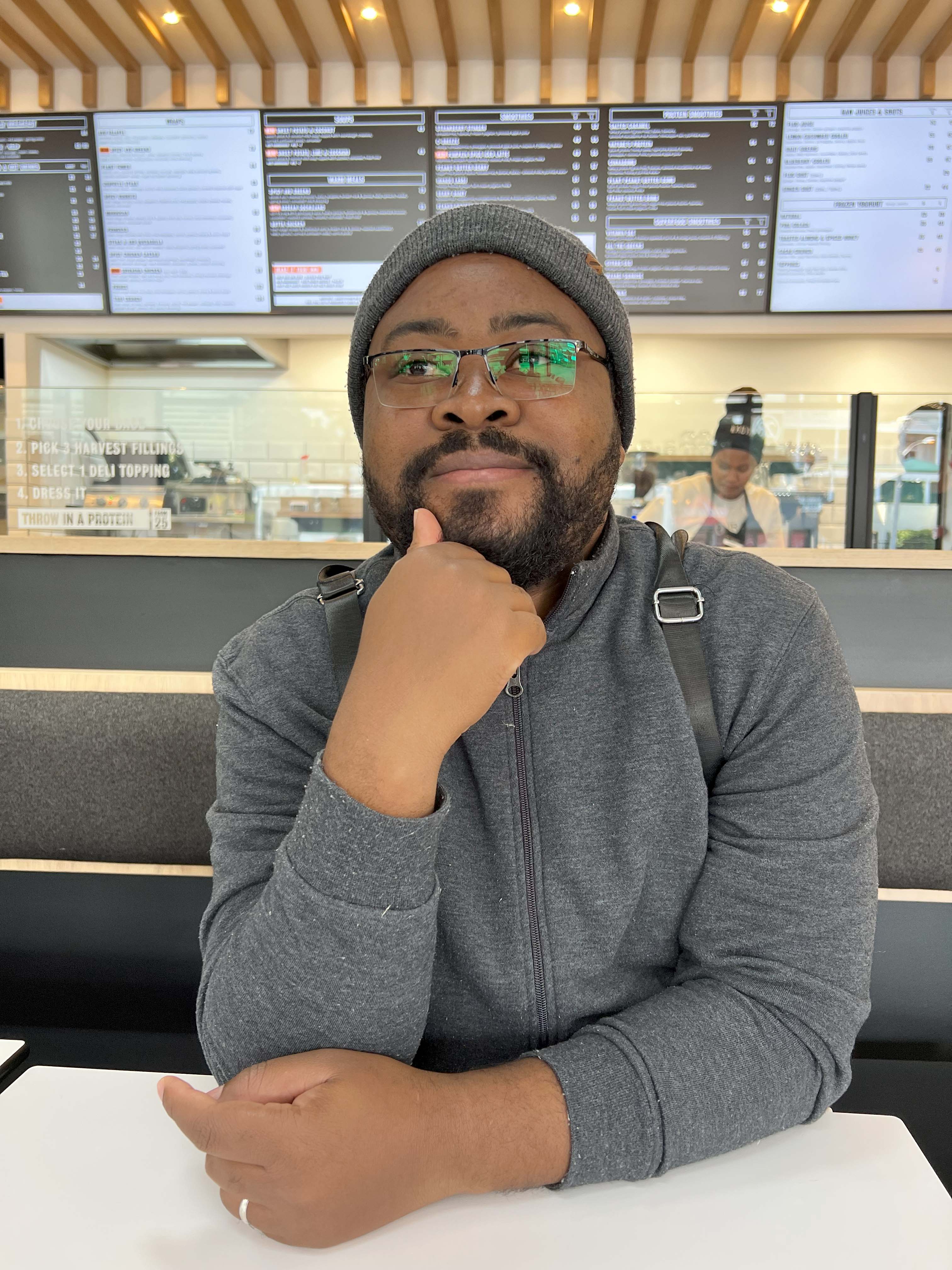Chansa Kabwe
Independent Learner | Zambia
"Coding the future with MIT OpenCourseWare"

Independent Learner | Zambia
"Coding the future with MIT OpenCourseWare"
Angela Pignatiello | MIT Open Learning
Chansa Kabwe, a machine learning engineer and MIT OpenCourseWare learner from Zambia, is a shining example of how to forge — or perhaps code — one’s own future. A go-getter from the start, Kabwe cites his father as a driving force behind his early love of math and science. “My education has always been an important part of my life,” he recounts. When he discovered Honda’s ASIMO robot on National Television in the early 2000s, his interest was further piqued. “It was my first time seeing a real-life robot, like in the movies,” says Kabwe, who was between 11 and 12 years old at the time. Amazed, he wanted to learn how to work and play with the robots.
Kabwe continued to pursue science through his time at a national technical high school, where he was involved in STEM activities and competitions. Upon graduation he knew he wanted to study robotics, but there were no such programs to speak of in the country at that time. He resolved to major in electronics engineering at the University of Zambia, but that pull towards robotics never left him.
During his freshman year of college, Kabwe had free and unrestricted access to the internet for the first time. He searched the rankings of top colleges and engineering programs. Up until then, he had never heard of the Massachusetts Institute of Technology. “I saw that for engineering, ever since they had started ranking, MIT had always been number one,” he recalls. “And I was like, okay — they are doing something. Let me check them out.”
MIT’s Electrical Engineering and Computer Science (EECS) program intrigued him, and when he came upon MIT OpenCourseWare, he found a series of archived EECS classes as taught in a given term, with all available resources put online.
Using outlines from the EECS undergraduate degree track as laid out on the department’s website, Kabwe discovered math, programming, foundations, and elective classes to create his own EECS experience. He decided to dedicate any time reserved for individual studies to learning through these resources. He essentially took on two courseloads — one in his studies at the University of Zambia, and another of his own design through OpenCourseWare.
He began with 6.00 Introduction to Computer Science and Programming with Prof. Eric Grimson. “This course taught me how to think like a computer scientist — that was the essence of the course,” he says, crediting the course, as well as 6.002 Circuits and Electronics with Prof. Anant Agarwal, with giving him a solid foundation to bring to his university coursework.
“I learned from zero; I had never done any programming before. It was very revealing for me,” says Kabwe, who has since become a donor to OpenCourseWare. As his college career progressed, these resources became more and more helpful in his studies. “I didn’t really need to learn any completely new things, especially on the electronics side. Everything in the foundations was covered — I didn’t feel the need to catch up. I was revising.”
By senior year, Kabwe found a niche of robotics that spoke to him: artificial intelligence. 6.01 Introduction to Electrical Engineering and Computer Science I had introduced him to search algorithms, an important area of AI, and in September 2011, Kabwe started his first course on artificial intelligence, 6.034. “There’s evolution happening in industry and in the world at large,” he says.
Now, Kabwe is a machine learning engineer for startup Digest AI, where he builds language models for digital learning assistants. “OpenCourseWare continues to be a big part of my career. My foundation is linked to it — I don’t know if I would be the same engineer today if not for OpenCourseWare,” says Kabwe.
We hope you’ve been inspired by this story and by OCW’s effort to meet the needs of learners eager to enhance their knowledge, lift up their communities, and change the world for the benefit of everyone. Please consider supporting our work with a donation or if giving isn’t possible right now, we’d love to hear how OCW has made a difference in your life or classroom. We’d appreciate it!